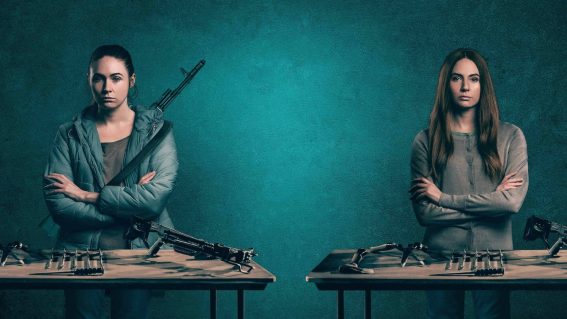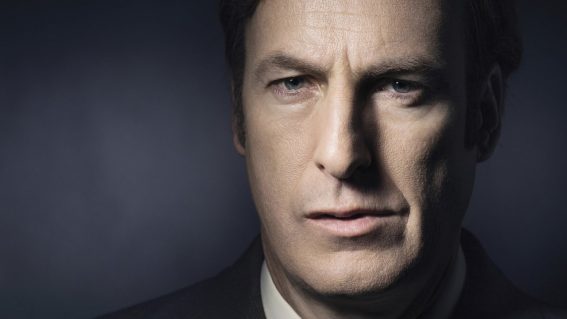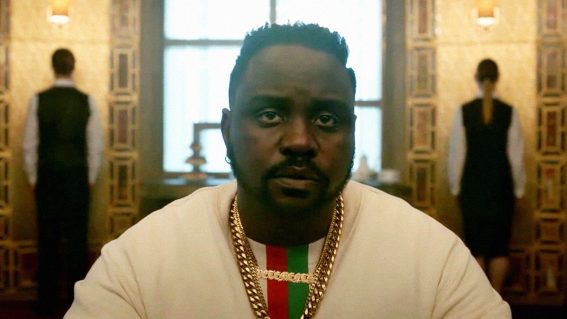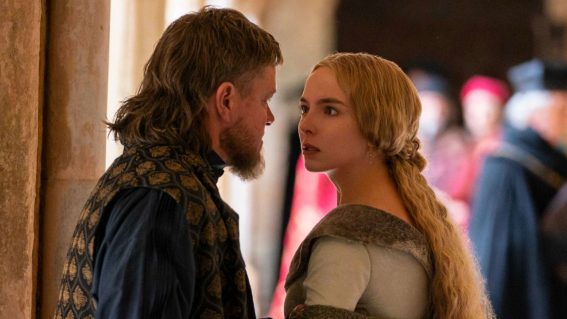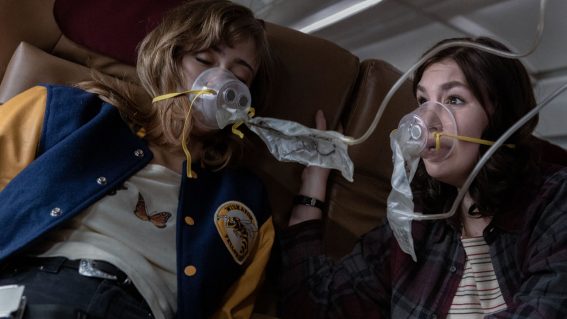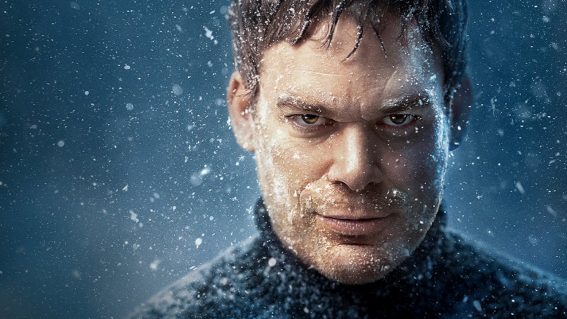A brutal murder intrudes on Nicole Kidman’s life of privilege in The Undoing
Nicole Kidman and Hugh Grant are onscreen together for the first time in new Neon thriller.
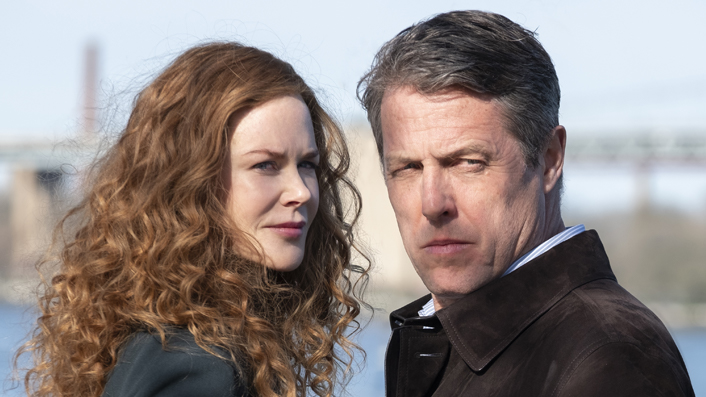
Big Little Lies creator David E. Kelley re-teams with star Nicole Kidman to adapt another novel full of scandalous secrets. Steve Newall details more of what to expect from The Undoing, streaming on Neon, which sees a successful psychologist’s world rocked by murder.
“I’m sorry if we frightened you, we do that sometimes.”
It’s not what we expect American police to say in 2020 when they confront someone on the street, but this deference and courtesy is just one of the many ways that clinical psychologist Grace Fraser’s privilege is evident in new drama series The Undoing—even as she finds herself entangled in a murder investigation.
See also:
* New release movies & series on Neon
* Everything coming to Neon this month
David E. Kelley’s new show—reteaming him with Big Little Lies’ Nicole Kidman, starring here as Grace—quickly establishes the rarified world of wealth and society that Grace inhabits. We’re introduced to her husband Jonathan (Hugh Grant) and their son Henry (Noah Jupe), a busy family in the kitchen as they prepare to head their separate weekday ways. If their impossibly enormous split-level midtown Manhattan apartment wasn’t enough of a clue, the Frasers’ lifestyle is made evident in dialogue, establishing the existence of patients (Jonathan), violin lessons (Henry) and a ladies’ tea to plan a school auction (Grace). As a bit of added reinforcement, “tons of money” is how Jonathan describes the cost of Henry’s private school tuition which, as Grace observes, is paid for by her father.
Despite a hefty cost to attend, Henry’s school still leans on parents for extra cash. So, after Grace’s skill and insight as a psychologist is seen via a session with a patient, she’s off to an even flasher apartment to join fellow school mums and discuss an upcoming art auction. Fancy stuff, but somewhat disrupted by the presence of Elena (Matilda De Angelis), a young mother whose son is said by gossiping parents to be studying on, gasp, a scholarship.
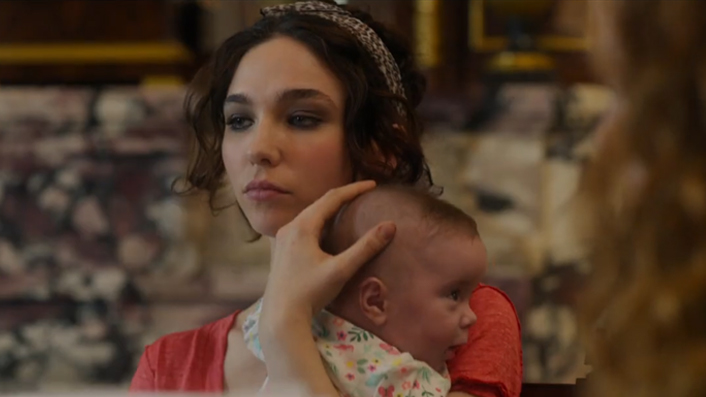
After a baby-toting Elena seats herself beside Grace, art auction business resumes, the everyday banter between these women effortlessly including talk of Hockney paintings. It’s a chat that Elena does not—possibly cannot—participate in, instead coolly evaluating Grace as conversation continues. Until, that is, talk turns to auctioning off a date with Grace’s husband, at which point Elena brings the room to a standstill as she bares a breast and feeds her infant in a blend of nonchalance and provocation. It shouldn’t be the latter, of course, but to the other women in the room, it’s confrontational.
“It was hostile, it just was,” Grace later explains to Jonathan, “But I don’t blame her. We were talking about art, we were talking about money… It was pretty vulgar, and she was just trying to say ‘I’m a real woman, I’m a real mom.’”
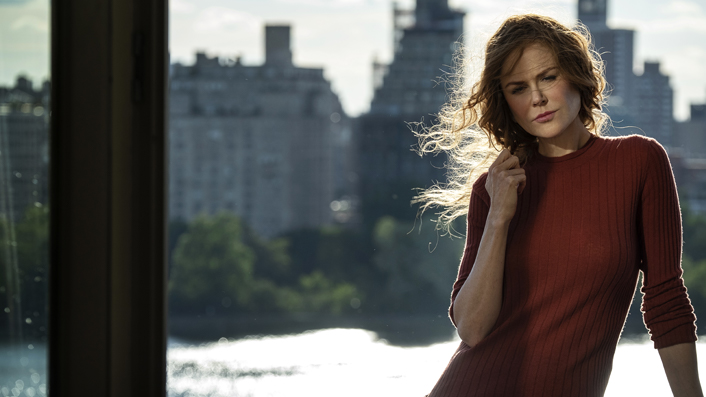
If that skirmish was the commencement of hostilities, Elena’s next move is a frontal assault. After some side-planking at the gym, Grace is sitting in the locker room, about to head off when a naked Elena catches her unawares. As she stands starkers in front of a seated Grace, hand on one cooly cocked hip, Kidman’s character struggles with where, exactly, to look, as an uncertain energy crackles between them.
“Were you a little bit… aroused?” Hugh Grant will purr later, when hearing of the tale—leaning into the creepy charm of his character. It’s one of several moments in the first episode where he and Kidman have fun opposite each other—for some reason they’ve never appeared on screen before, perhaps the closest they’ve come being superbly villainous taking turns as the baddie in successive Paddington films.
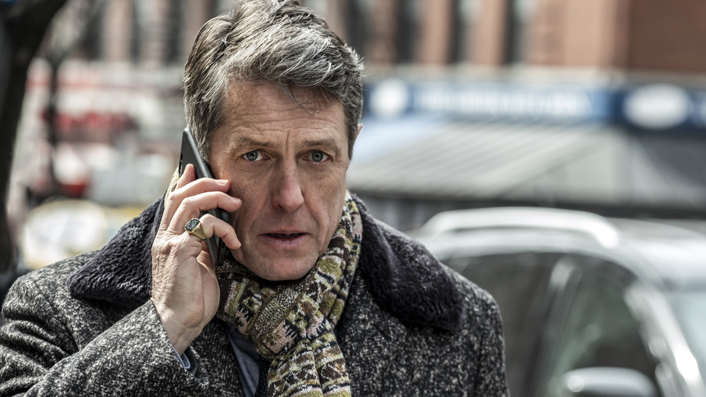
An increasingly 90s erotic thriller vibe continues to percolate when the art auction takes place, in a glassy apartment towering over the city. It’s another place of order and sterility that Elena’s presence unsettles, with young men drawn to her at the party and then an encounter with Grace in the elevator ending in an ambiguous kiss on the lips as the lift reaches street level.
A clear line between haves and have nots is being drawn—these things don’t happen at the literal upper reaches of the social strata seen inThe Undoing. Apartments, offices (and presumably the gym) are a place of order and sterility, of space and opportunity far above the bustle of ground-level New York City. If a few minutes in, you agree that the Frasers’ apartment seems massive, just wait until you get a load of the enormous opulence inhabited by Grace’s father Franklin (a typically superb Donald Sutherland, not least of all when snarling the word “cocksucker” in a later episode—describing himself, of all people).
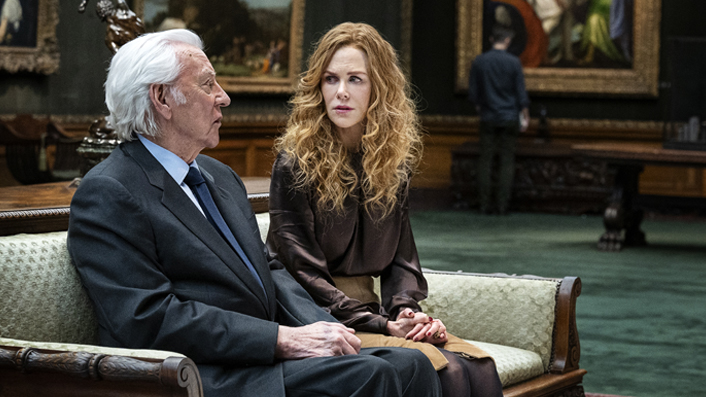
The sense of separation builds the longer The Undoing spends at street level, with Manhattan depicted as a bustling place that begins to more and more resemble the dreamy and intoxicating New York of Jane Campion’s subversive erotic thriller In The Cut. Rational things are done by privileged people in their elevated environments, all space and right angles. Street level’s where the order is disrupted—by crowds of people, by illicit sexual encounters… by murder.
Which brings us back to the cops who surprise Grace on the street, two detectives investigating the murder of a parent at Henry’s school as The Undoing moves into whodunnit mode. Detective O’Rourke (Michael Devine) is the one apologising, while his colleague Detective Mendoza (Édgar Ramírez) exhibits more hostility towards Grace and feeling no need to respect her privilege. Their investigation will pose more than a few questions for Grace as the series continues, chief among them—though such a talented psychologist, does she really know her husband?
Big Little Lies viewers may not be surprised that the marriage front and centre in The Undoing is perhaps not as rosy as it seems—but don’t mistake this for a Manhattan-set version of that similarly scandal-laced tale. Kelley and Bier don’t indulge in dark humour here, instead maintaining a conventional thriller focus, keeping the audience guessing about the crime at the show’s centre.
With all the privilege on display, it’s perhaps a little hard to see what Grace has to lose—but until we see where this all ends up, it’s likely that itself may be the point.







